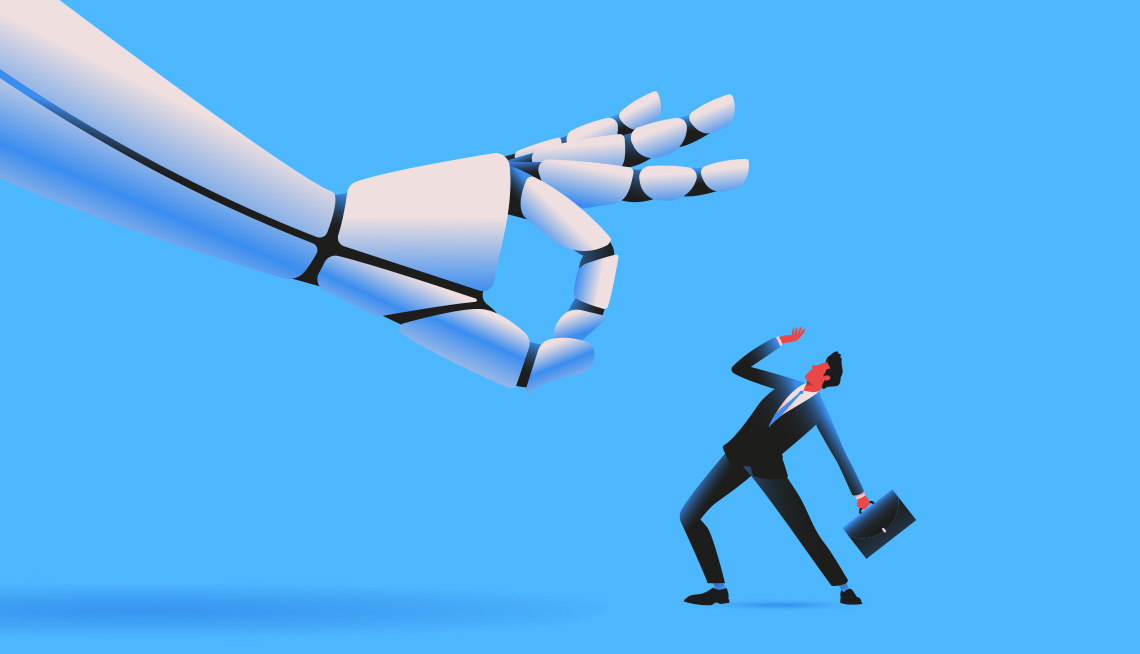
- Select a language for the TTS:
- UK English Female
- UK English Male
- US English Female
- US English Male
- Australian Female
- Australian Male
- Language selected: (auto detect) - EN
Play all audios:
The fear that artificial intelligence (AI) will take away the livelihoods of older adults has been expressed often since ChatGPT and other generative AI chatbots emerged in recent months. Of
course, not all jobs are the same, nor is the potential threat AI technology may pose to various occupations. Nearly 1 in 5 workers in the United States have jobs likely to have the most
exposure to AI, according to a July 26 report from the nonpartisan Pew Research Center, which is careful to avoid equating exposure with actual risk of job loss. Budget analysts, data entry
personnel, tax preparers, technical writers and web developers are among the jobs in the high-exposure category, Pew says. Jobs rated as less exposed include the hands-on work of barbers,
child care workers, dishwashers, firefighters and pipe layers. Several other positions fall somewhere in the middle and include chief executives, fundraisers, interior designers, sales
managers and veterinarians. LEARN MORE SENIOR PLANET FROM AARP has free online classes to help you discover more about artificial intelligence. Occupations where AI can perform the most
important tasks a job requires with little or no human intervention were considered more exposed. For example, AI could replace, at least to a degree, tasks such as “getting information,”
“analyzing data or information” and “working with computers,” the study found. Generative AI can create conversational answers in text, images or audio to questions it is asked, generally
based on its database of knowledge. But early use of generative AI shows that it also can make things up while sounding authoritative. Less exposed jobs are those where AI alone cannot
“assist and care for others” or “perform general physical activities.” A caregiver, both paid or a family member, fits this description. WILL AI REPLACE ME AT WORK? To determine high,
medium or low exposure, Pew rated a set of 41 job-related work activities considered common to all occupations. But Pew punted on the critical question of whether exposure to AI will lead to
job losses or perhaps job gains. The reason: AI could either replace or complement what workers do. “This is relatively new technology,” says Pew senior researcher Rakesh Kochhar, who wrote
the report. “We don’t know how it’s going to play out.” Powerful chatbots could replace customer service agents. Or instead, AI could help human agents bolster productivity. A March
research report from financial services company Goldman Sachs echoed some of the uncertainty. “If generative AI delivers on its promised capabilities, the labor market could face significant
disruption,” the report read. “Using data on occupational tasks in both the U.S. and Europe, we find that roughly two-thirds of current jobs are exposed to some degree of AI automation, and
that generative AI could substitute up to one-fourth of current work.”







